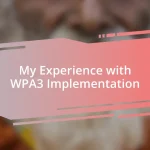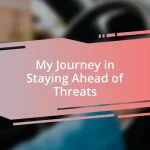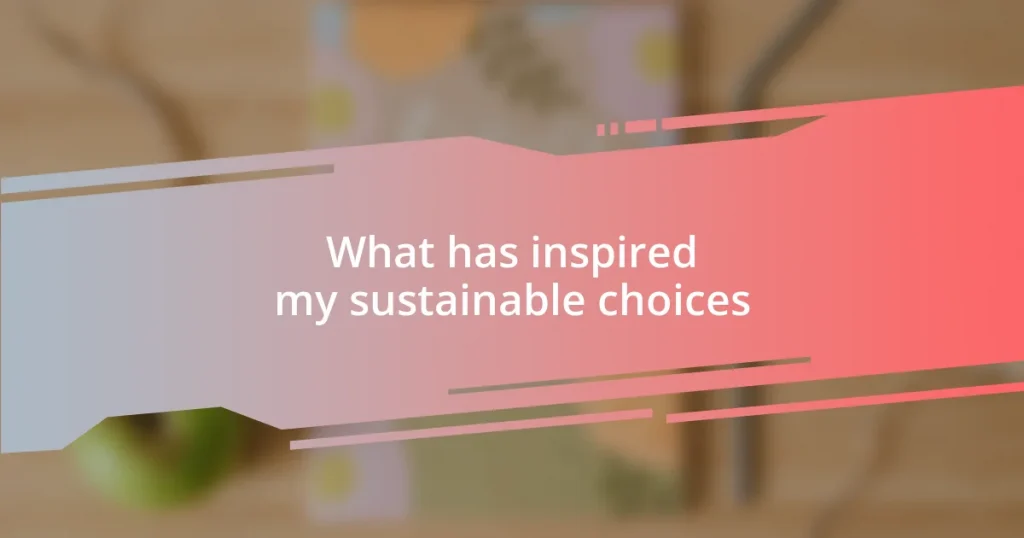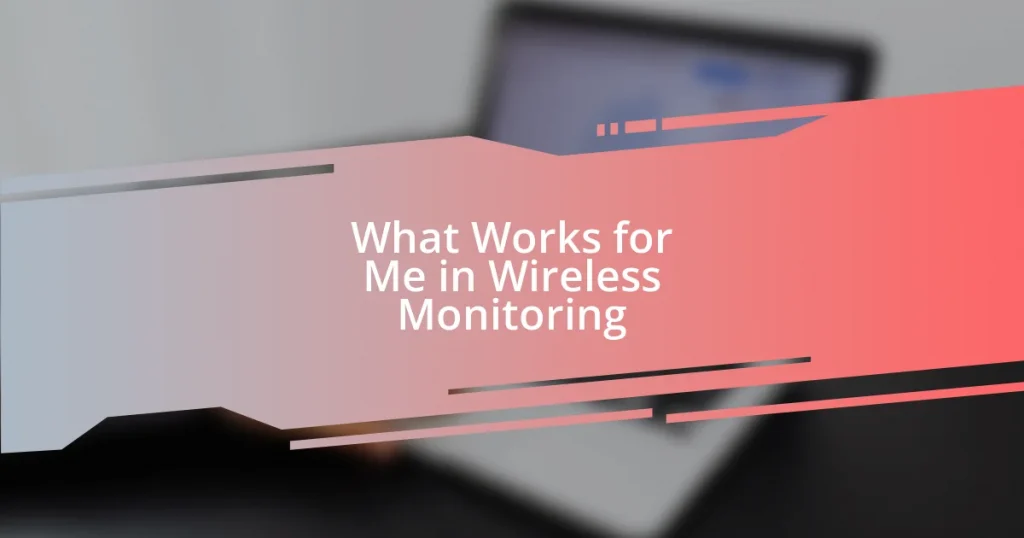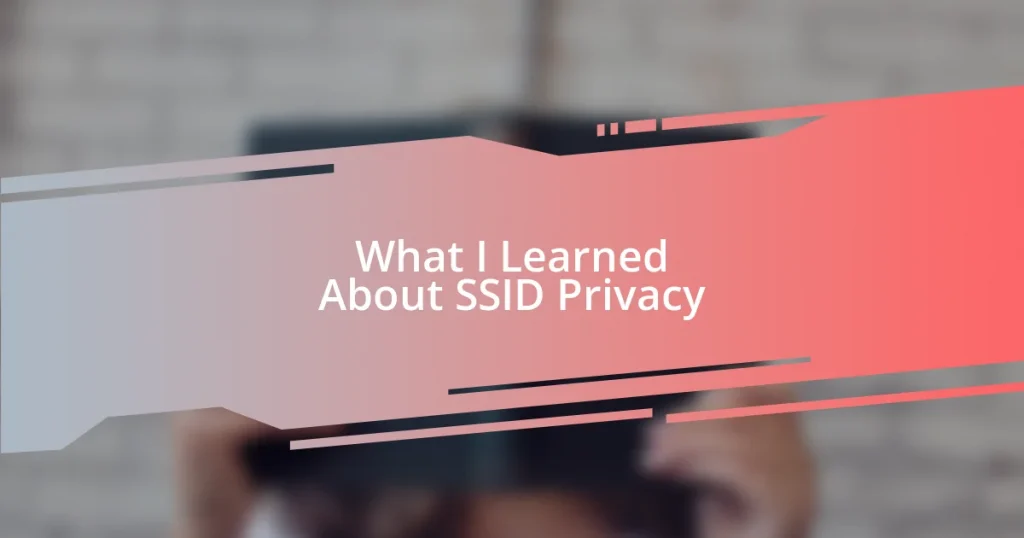Key takeaways:
- Personal experiences, such as witnessing litter while camping and helping in a family garden, greatly influence sustainable choices and foster a sense of responsibility toward the environment.
- Education, including documentaries and community engagement, serves as a catalyst for understanding sustainability and encourages individuals to take action collectively.
- Setting clear future goals, like adopting a plant-based diet and advocating for renewable energy, is essential for making a meaningful and lasting impact on sustainability.
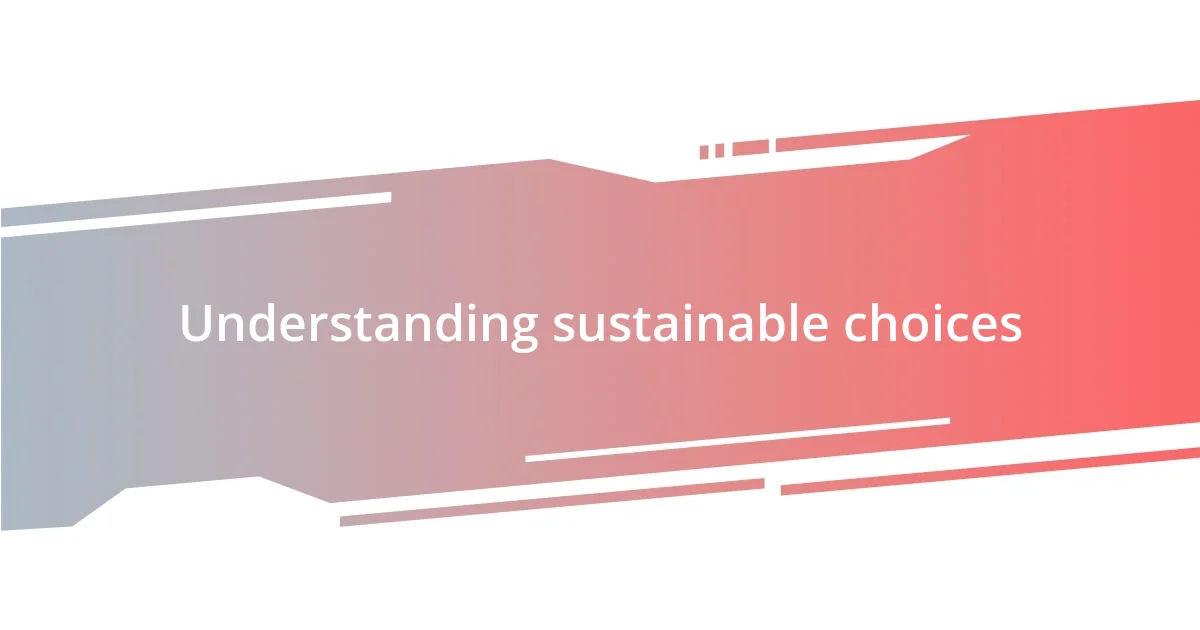
Understanding sustainable choices
Sustainable choices revolve around the concept of making decisions that minimize our impact on the environment while promoting a healthier planet for future generations. I still remember the first time I opted for a reusable shopping bag; it felt small but significant. How often do we consider how seemingly minor decisions contribute to a larger issue?
When I began to truly understand sustainability, I was struck by how interconnected everything is—from the products we buy to the waste we generate. It made me reflect on the choices I was making daily. Have you ever taken a moment to think about the journey a product takes before it reaches you? Realizing that I could influence this cycle inspired me to seek out brands that prioritize ethical sourcing and environmentally friendly practices.
I often feel a sense of hope when I see others engaging with sustainable choices. It reminds me of the ripple effect: when one person makes a change, it often inspires those around them. Doesn’t it make you curious how your own choices might inspire others to follow suit? Understanding sustainable choices isn’t just about individual actions; it shapes a collective movement towards a compassionate and responsible lifestyle.
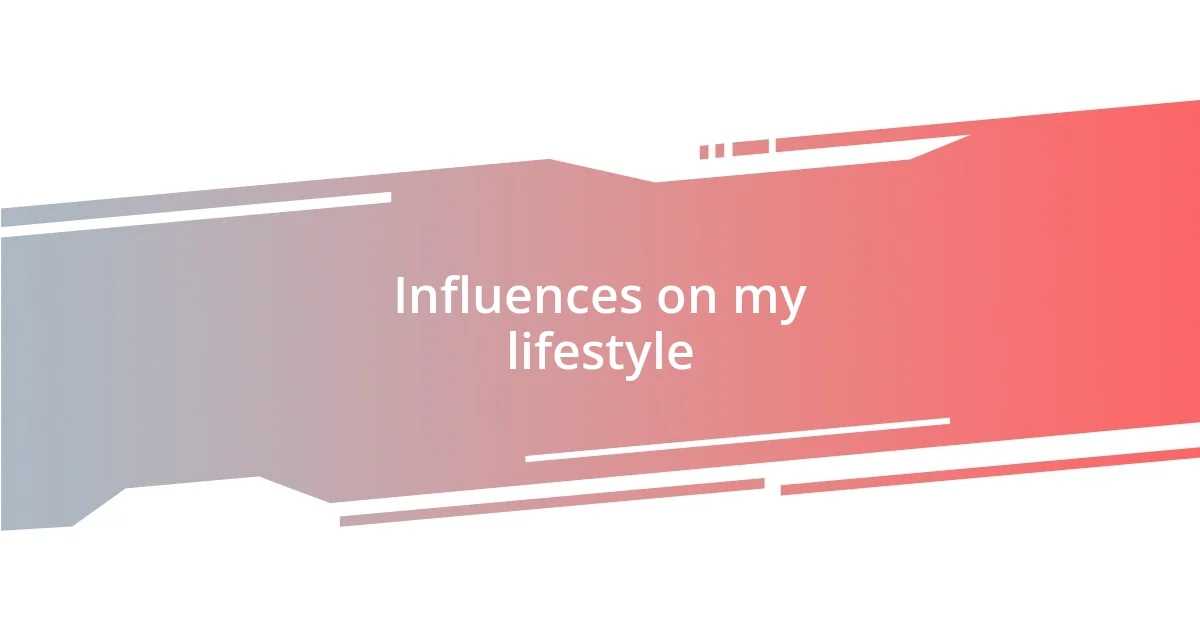
Influences on my lifestyle
Not only do my sustainable choices reflect my values, but they also stem from various influences around me. I think back to my grandmother, who always emphasized the importance of reducing waste before it became fashionable. Her lessons on frugality and resourcefulness have stayed with me, shaping how I approach consumption today. Seeing her find new uses for everyday items inspired me to view waste not as a burden but as an opportunity for creativity.
Some specific influences on my lifestyle include:
- Family Traditions: Their values instilled a sense of responsibility towards the environment.
- Peer Relationships: Friends who prioritize sustainability encourage me to engage more deeply.
- Documentaries and Books: These expose me to new ideas and real-world consequences of our habits.
- Local Community Initiatives: Participating in local clean-up events deepens my connection to nature and fosters a sense of camaraderie.
I believe that each of these influences gently nudges me towards a more sustainable lifestyle, reminding me how interconnected our choices truly are.
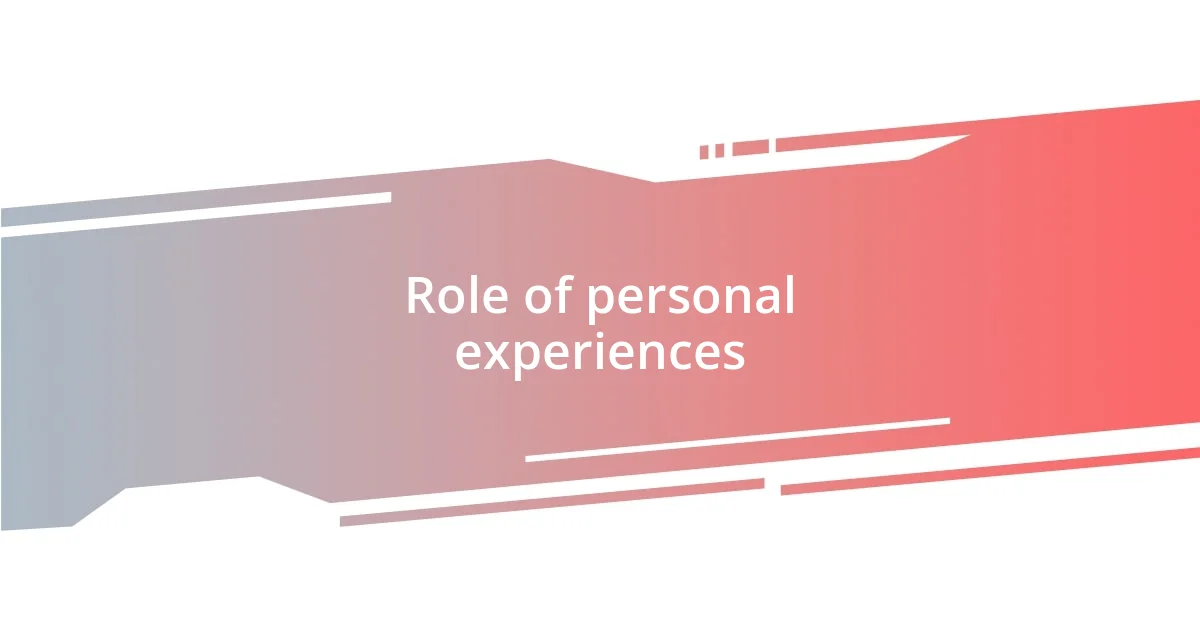
Role of personal experiences
Experiences shape our choices in ways we might not initially realize. I vividly recall a camping trip where I witnessed the impact of litter in natural spaces. That moment was an eye-opener; I felt a mix of frustration and sadness. It motivated me to take action in my own life and inspired me to adopt a habit of always carrying my trash back with me. Have you ever had an experience that left you questioning your own habits?
As I navigated my personal journey toward sustainability, witnessing friends struggling with waste management was another profound influence. Listening to their stories made me understand how challenging these transitions can be. I empathized with their struggles and realized that my own sustainable choices could offer practical support. Sharing strategies for minimizing waste became a way for us to bond deeply. It shows how personal experiences not only shape our choices but also connect us with others.
Reflecting on my upbringing, I remember my father’s vegetable garden. As a kid, it felt like a chore to help him water the plants. Now, looking back, I understand that connection to the earth and the cycle of growing our own food laid the foundation for my sustainable philosophies. Those moments, rooted in love and learning, highlight how personal experiences can motivate sustainable living in distinct, yet impactful ways.
| Personal Experience | Impact on Sustainable Choices |
|---|---|
| Camping Trip | Increased awareness of litter and personal responsibility towards waste |
| Friends’ Waste Management Struggles | Empathy and motivation to share strategies for sustainability |
| Father’s Vegetable Garden | Foundation for understanding earth connection and food sustainability |
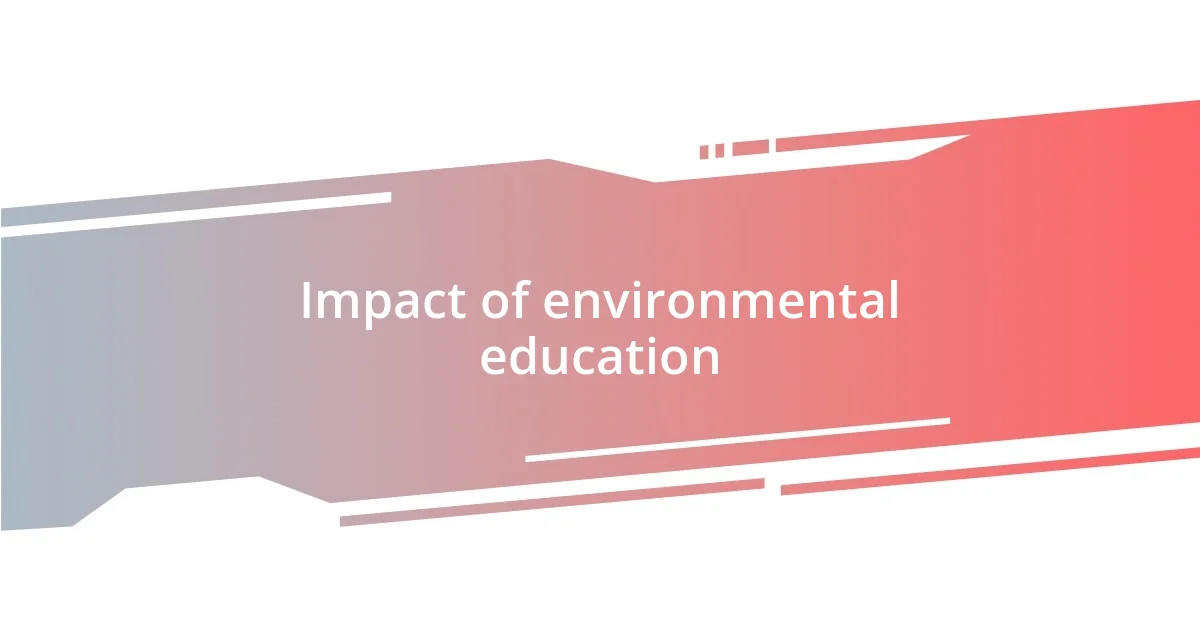
Impact of environmental education
Environmental education has profoundly shaped my understanding and commitments towards sustainability. I still remember the first time a teacher explained the greenhouse effect in vivid detail. The realization that simple actions could contribute to climate change felt so personal. I couldn’t help but ask myself: what impact am I having on the planet with my daily choices?
Throughout my journey, documentaries have played a significant role in my education. One in particular, featuring the journey of plastic in our oceans, struck a chord. I found myself feeling both anger and helplessness as I watched. It sparked a passion within me to not just be aware but to educate others. Have you ever felt inspired to spark change after learning something new? That’s the power of understanding; it drives us towards action.
Engaging in local environmental groups has been equally enlightening. I’ve listened to stories from community members who are on the front lines of ecological restoration. Their experiences opened my eyes to the realities of environmental degradation, but it also filled me with hope. It made me realize that every bit of knowledge gained can be a stepping stone toward collective action. Isn’t it incredible how education can create such a profound sense of community among like-minded individuals?
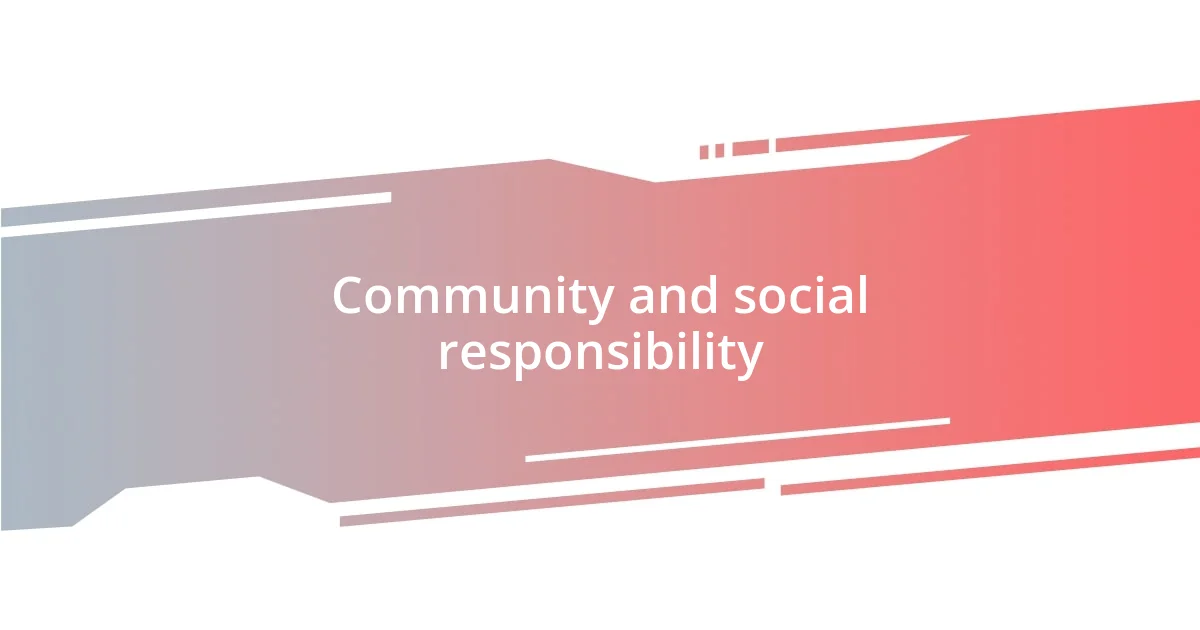
Community and social responsibility
Community plays a crucial role in shaping our collective approach to sustainability. I remember participating in a neighborhood cleanup day, where locals gathered to remove trash from a nearby park. The shared laughter and conversations made me realize how invested we all were in maintaining our environment. Have you ever felt that sense of unity when working alongside others for a shared cause? It’s this community engagement that not only beautifies our surroundings but also strengthens our bonds and collective commitment to social responsibility.
Volunteer events can also be transformative. Some time ago, I joined a community garden initiative where we taught children about planting and nurturing their own food. Watching their faces light up when they saw the fruits of their labor was incredibly rewarding. It made me appreciate how teaching the next generation fosters a sense of responsibility towards the planet. Isn’t it amazing how simple acts of kindness can ripple through a community, inspiring each individual to make conscious choices?
In my experience, social responsibility extends beyond local efforts; it encompasses global awareness as well. After attending a workshop on fair trade practices, I was inspired to consider how my purchasing choices affect communities worldwide. This realization often leaves me asking: how can I ensure that my money contributes to ethical practices? Understanding the interconnectedness of our choices ignites a passion to advocate not only for my local community but also for those across the globe. It’s a powerful motivator that connects us all.
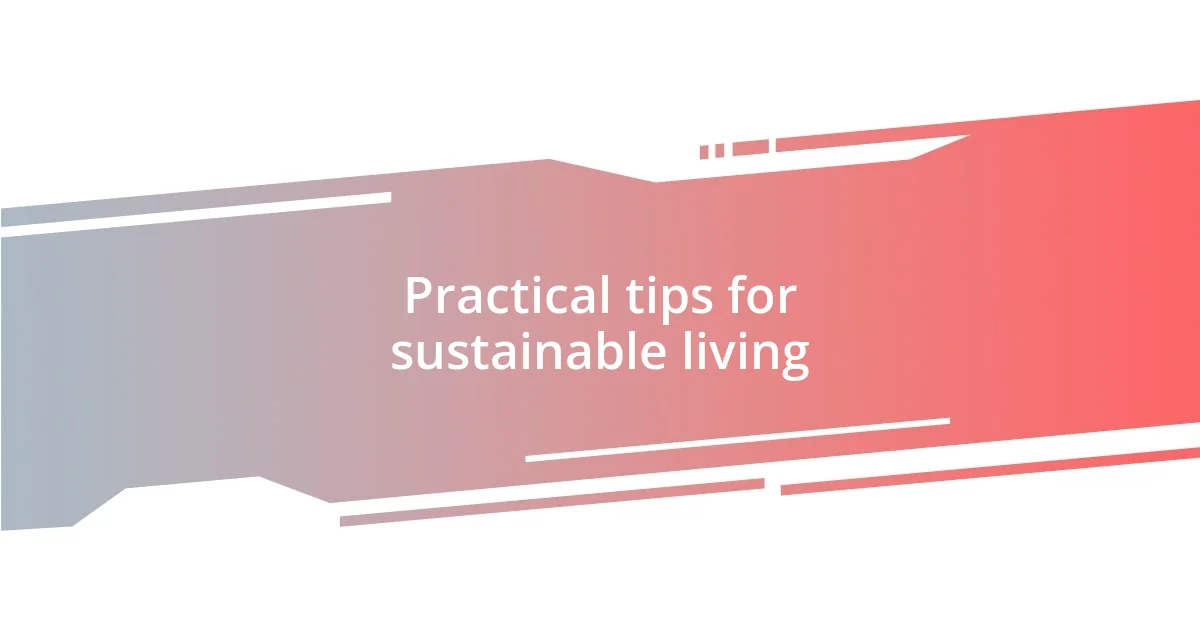
Practical tips for sustainable living
Making sustainable choices in our daily lives often starts with small, manageable steps. I remember the first time I swapped out single-use plastic for reusable bags. It felt like such a simple action, yet as I walked through the store, I noticed how it shifted my mindset. Have you considered how making eco-friendly swaps, like using a reusable water bottle, can gradually reduce waste? Over time, these small changes can contribute to a much larger impact.
In my experience, meal planning can also make a significant difference. I used to find myself throwing away leftovers because I hadn’t planned well for the week ahead. Now, I take a little time each Sunday to consider what I’ll cook, aiming to use seasonal ingredients. This not only cuts down on food waste but also encourages me to support local farmers. Plus, it’s rewarding to turn a simple meal into a creative endeavor. Have you tried meal planning? It’s a game-changer for reducing both waste and grocery bills.
Transport choices are another area ripe for sustainable living. I once set a personal challenge to bike to work instead of driving whenever possible. The exercise was a bonus, but I also enjoyed the fresh air and the opportunity to connect with my neighborhood. Have you thought about how swapping car trips for walking or cycling could change your perspective? This small shift not only reduces emissions, but it also fosters a greater appreciation for the environment around us. Taking these practical steps fuels my passion for living sustainably, reminding me that change often begins with individual choices.
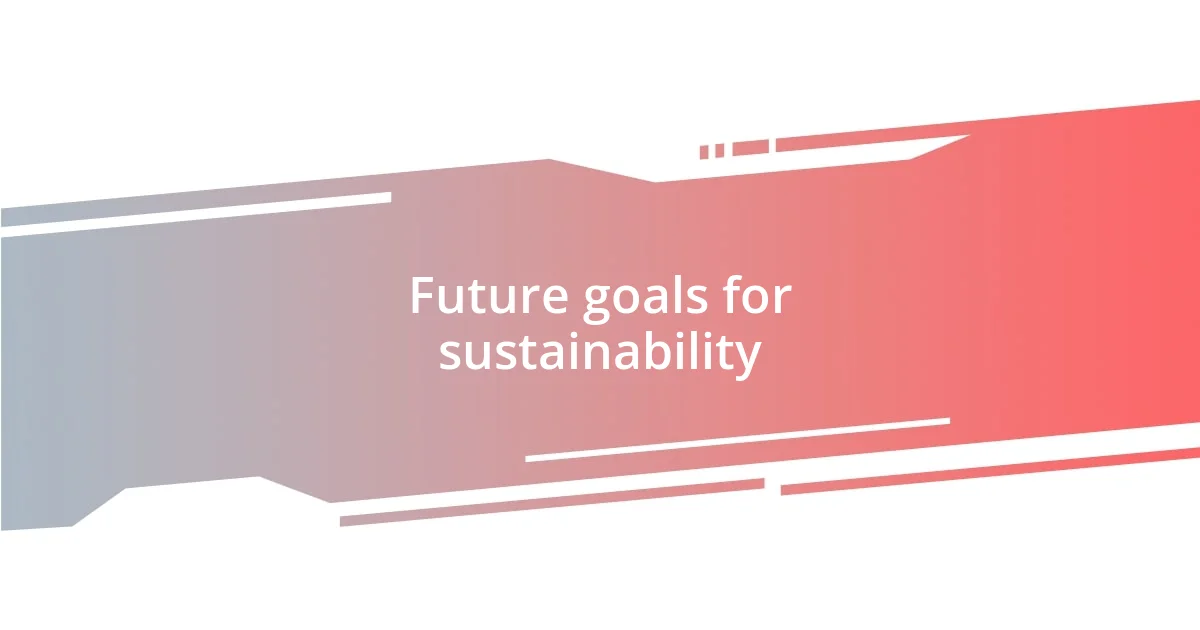
Future goals for sustainability
Setting clear future goals for sustainability is crucial to making a lasting impact. Recently, I made a commitment to minimize my carbon footprint by aiming to transition to a plant-based diet within the next few years. This decision stems from a growing awareness of the environmental benefits, and I often wonder: how can one meal choice ripple out to make a more significant difference? Each time I prepare a meal, I’m reminded of this goal, which brings both excitement and a sense of responsibility.
Another goal I’m aspiring to is reducing my reliance on fast fashion. I’ve started the journey by dedicating time to research brands that align with sustainable practices. Just the other day, I found a thrift store in my neighborhood, which not only offers unique pieces but also promotes a circular economy. Do you know how rewarding it can feel to give a second life to clothing? It’s a small shift, but it has ignited my interest in fashion’s environmental impact, making me a more conscious consumer.
In the coming years, I plan to actively advocate for community policies that support renewable energy. I attended a town hall meeting recently, and the discussions ignited something within me. When I spoke about the importance of solar energy incentives, I saw nods of agreement around the room. It made me ask: how does collective advocacy shape our communities? It reinforced my belief that sustainable change comes from both personal choices and community action, creating a powerful blend that drives progress.








